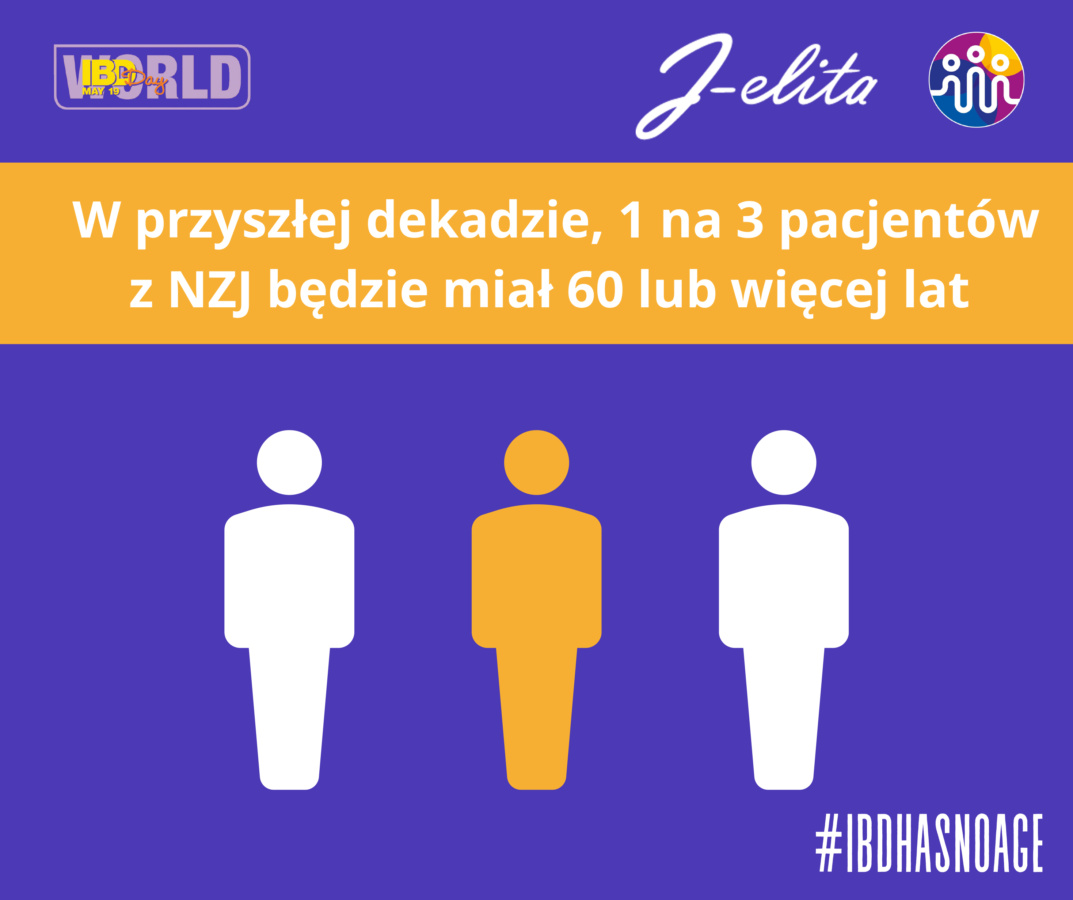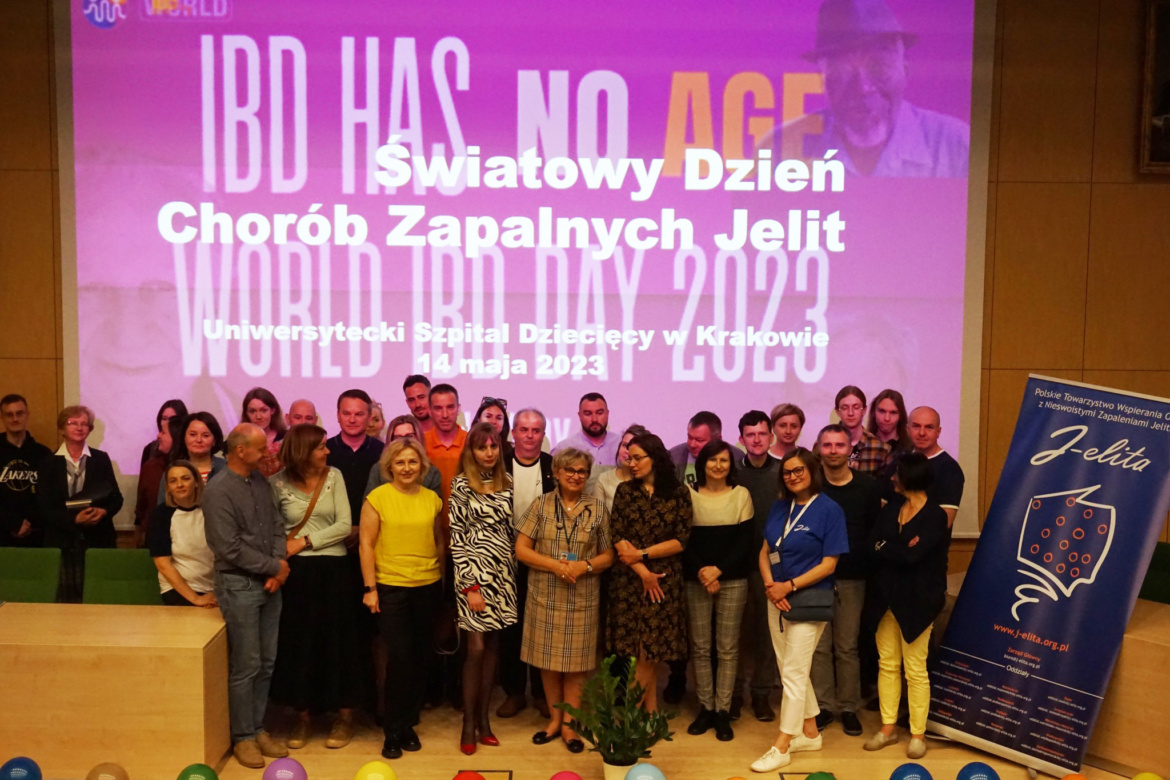World Inflammatory Bowel Disease Day 2023 - Older patients are on the rise
An international survey of seniors suffering from ulcerative colitis and Crohn's disease, lectures by specialists and meetings in Polish cities, and the purple illumination of well-known buildings - on 19 May, patients with inflammatory bowel disease (IBD) around the world will celebrate World IBD Day.
The survey for people with IBD aged 60 and older was created in seventeen languages and includes, among other things, questions about the quality of care and life of seniors. It was created by experts from the European Federation of Crohn's and Colitis Ulcerosa Associations (EFCCA). The Polish version was developed and will be made available on 19 May on its website by the EFCCA-affiliated 'J-gut' Society.

- 'We want to learn more about the condition, treatment, complications and associated diseases of people with ulcerative colitis and Crohn's disease at an older age,' explains Magdalena Sajak-Szczerba, secretary of the 'J-elita' Society and EFCCA board member. - It is true that young people, between the ages of 20 and 29, are most likely to develop IBD, but experts estimate that in the next decade, as many as one-third of all patients will be older people.
That is why the slogan for this year's campaign is 'IBD has no age'. Its most important demand is equal access to the best treatments, regardless of age. Seniors with IBD struggle with many conditions and take many different medications. Unfortunately, they are underrepresented in clinical trials. There is therefore a risk that they may not fully benefit from the best treatment options. Hence, more knowledge about their health condition is needed. The ageing IBD patient population requires comprehensive action and preparation of the healthcare system. It is also important to address age discrimination and ensure the best possible quality of life for older IBD patients.
On the occasion of World IBD Day, the "J-gut" Society is organising a events all over Poland. The celebrations began last Sunday, 14 May, at the University Children's Hospital in Kraków with an open workshop for patients, during which a lecture was given by, among others, paediatric gastroenterologist Professor Małgorzata Sadek. On the other hand, an IBD Education Day is planned for Saturday 20 May in Kielce, with lectures by specialists ● a picnic for sick children and their families at the Nature and Forest Education Centre in Glinna near Szczecin ● an educational stand in the centre of Wrocław (details on the association's website - j-elita.org.pl). Traditionally, on 19 May, various buildings will be illuminated in purple - the colour of IBD - including: M. Karłowicz Philharmonic Hall in Szczecin, Tarczyński Arena stadium in Wrocław, Tauron Arena performance hall and Fr. Bernatek footbridge on the Vistula River in Kraków and the Śląsko-Dąbrowski Bridge in Warsaw ● Galeria Echo and the Voivodship Office in Kielce.
Inflammatory bowel disease (IBD), also known as inflammatory bowel diseases, are chronic autoimmune diseases that include ulcerative colitis and Crohn's disease. The disease manifests itself with diarrhoea (up to 30 bowel movements per day), abdominal cramps and pain, rectal bleeding, weight loss, fever and fatigue. It has periods of exacerbation and remission, when symptoms disappear or are less severe. IBD can be accompanied by extra-intestinal symptoms, affecting such things as the eyes, joints or skin. Patients in an exacerbation often require hospitalisation, and many people struggling with the severe form of the disease undergo surgery to remove a section of the bowel (in Crohn's disease) or the entire large bowel, a so-called colostomy (in ulcerative colitis) and a stoma.
European Federation of Crohn's and Colitis Ulcerosa Associations (EFCCA) brings together inflammatory bowel disease patient organisations from 46 countries to promote awareness of IBD and work to improve the quality of life of more than 10 million people with IBD worldwide, and nearly 100,000 in Poland, (including 73.2 thousand with ulcerative colitis and 23.6 thousand with Crohn's disease).
The 'J-elite' Society has more than 3,000 members and is the largest organisation in Poland supporting patients with IBD. It organises holidays for patients and their relatives, offers free psychological support to patients, publishes free guidebooks and a quarterly magazine, supports patients in a difficult financial situation in purchasing medicines and strives for access to modern treatment.


